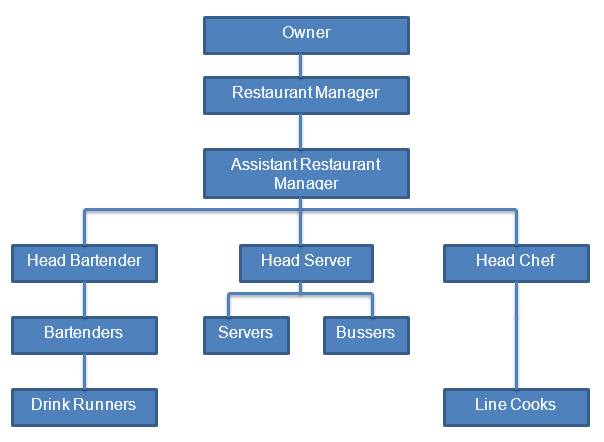Introduction to Manager Level
Exploring Different Types of Manager Levels in Modern Organisations
Effective management and leadership are crucial for success in today’s dynamic business landscape. In any organisation, managers wear many hats, each with its own set of duties finely tuned to meet the requirements of their departments or teams.s. Understanding the different types of managers and their functions is essential for aspiring leaders and business professionals.
- Defining the Managerial Role
In organisational dynamics, the role of a manager stands as a cornerstone. Managers oversee teams, ensure goals are met, and facilitate smooth operations.
- Importance of Effective Management
Effective management is the bedrock upon which successful organisations are built. It fosters productivity, enhances employee satisfaction, and drives towards achieving strategic objectives:
- Understanding Managerial Hierarchy
- Different Levels of Management

Unlock Your Managerial Potential: Rise To The Pinnacle Of Success!
A well-organised business structure is crucial to the success and growth of any organisation. With a clear hierarchical structure, each manager level can effectively function with its responsibilities and scope of authority. This ensures that every member knows their role and can work together smoothly towards the common goal. By implementing a transparent and efficient structure, any organisation can achieve greatness and reach new heights of success.

Executive Management
At the apex of the hierarchy resides the executive management, comprising top-level decision-makers responsible for setting the organisation’s strategic direction.
Top-level managers, also called senior executives or C-suite executives, occupy the highest echelons of the organisational hierarchy and are responsible for setting the direction and vision of the company. At the helm of an organisation, top-level managers shoulder the burden of responsibility for charting their long-term course through strategic decision-making.
- Key among their roles and responsibilities are:
- Setting organisational objectives and defining strategic priorities
- Overseeing corporate organisation, ensuring regulatory compliance,
- Representing the organisation to external organisations such as investors, government agencies, and the media
Leading organisational change projects and developing an innovative and organised culture. Top-level or administrative managers are in charge of the organisation’s overall direction. These managers certify that the organisation is accomplishing its long-term objectives and steadily expanding.
Their key goals are often to build a successful company with a significant profit margin and a positive reputation. Top-level managers have the most responsibility, authority, and control in a company, yet they frequently accept suggestions to improve and listen to complaints from other employees. The essential duties of top-level managers are formulating business plans, setting goals, and maintaining touch with other businesses.
Top-level managers have many different roles, but all are crucially important positions that direct all other employees. Some typical roles in top-level management are:
- Chief Executive Officer – (CEO)
- Chief operating officer -(COO)
- Chief financial officer (CFO)
- President
- Vice president
- Board of directors

2. Middle Management
Middle Managers: Middle managers bridge frontline supervisors and senior executives, pivotal in translating strategic objectives into actionable plans. They coordinate activities within their departments or functional areas and ensure alignment with the organisation’s goals. Key responsibilities of middle managers include:
- Developing departmental goals and strategies
- Allocating resources and managing budgets
- organisation communication between different levels of the organisation
Mid-level managers: Mid-level managers, often executive managers, can be Regional Managers or Area Managers, implement top-level management strategies for first-line managers and other employees. They serve as a critical link between the administrative ranks and everyone else, frequently bridging the gap by circulating information from top-level managers for employee discussion or training.
General Managers and Branch Managers report to Regional Managers or Area Managers and are often responsible for overseeing a company’s branches and ensuring that their employees understand the overall goals towards which they are working. Typical responsibilities include top-level planning, mentoring first-line managers, and performing group performance assessments.
Most mid-level managers work with specific sections of a company to help their section adhere to company standards.
Jobs available in mid-level management include:
- General manager
- Branch manager
- Department manager
- Regional manager
- Project Manager
- Plant manager
- Division manager
3. Front-line Management
Frontline managers, also known as first-line managers or supervisors, are the backbone of operational efficiency within an organisation. They directly supervise the day-to-day tasks of frontline employees, ensuring smooth and efficient completion in alignment with established procedures.
Frontline managers are responsible for guiding and supporting team members, monitoring workflow and productivity, resolving organisational problems, and managing performance. Implementing organisational policies and procedures on an operational level.
First-line, or supervisory, managers report to mid-level managers and support the smallest divisions of a company, like sections within a branch or specific groups of employees.
First-line managers successfully lead their teams and support the organisation’s expansion by interpreting the directives from organisational managers to help contribute to the company’s growth. First-line managers also listen to employee concerns and discuss them with mid-level management, who may take them to top-level management.
Roles for first-line managers typically involve interacting directly with employees to help them perform their duties successfully and create a work environment committed to following directions from upper management. A few job titles for a first-line manager are:
- Floor Manager
- Supervisor
- Section Supervisor
- Team lead
- Foreperson
- Section Supervisor
4. Project Managers
Project managers play a pivotal role in advancing specific initiatives inside a business. They oversee the design, execution, and completion of projects within predetermined boundaries of time, money, and scope. They work with cross-functional teams to meet project objectives and deliverables. Critical responsibilities of project managers include:
- Defining project scope, objectives, and deliverables
- Creating organisations and schedules
- Allocating resources and managing budgets
- Monitoring progress and mitigating risks
- Communicating project status updates to stakeholders
5. Functional Managers
Functional managers oversee specific functions or departments within an organisation, such as finance, marketing, human resources, or operations. They possess specialised knowledge and expertise in their respective domains and are tasked with optimising processes and driving performance within their areas of responsibility.
Critical responsibilities of functional managers include:
- Developing organisational strategies to achieve functional objectives
- Managing departmental budgspecialisedources
- Recruiting, training, and developing staff
- Collaborating with other areas to accomplish organisational goals

Responsibilities at Each Manager Level
The responsibilities assigned at each manager level vary depending on their hierarchical position within the organisation.
Skills Required for Managerial Success
- Leadership Skills: Inspiring and Motivating Teams
Great managers inspire their teams to reach new heights through organisational purpose and motivation.
- Decision-Making Abilities
Effective decision-making is a crucial skill for managers, who are often required to organise choices that impact the team and the organisation.
- Communication Skills
To build good relationships with team members and stakeholders, transparent and efficient communication is required, as it serves as the foundation for creating solid connections and collaboration and cultivating trust and understanding among external stakeholders.
- Interpersonal Communication
It increases understanding and trust and guarantees that everyone involved is on the same page with the project’s or organization’s aims and objectives. Conflicts can be resolved quickly and efficiently by maintaining open lines of communication to achieve common goals. Effective communication promotes collaboration, innovation, and a positive work culture, ultimately contributing to the overall success of the team and business.
- Effective Presentations
Managers must possess the ability to convey information persuasively through presentations to engage and inform diverse organisations.
Strategic Thinking:
- Long-term Planning
Managers must think strategically, anticipating future challenges and opportunities to steer their teams towards long-term success.
- Adaptability to Change
In the ever-changing corporate landscape of today, managers must be able to adjust to change to overcome uncertainty and take advantage of new opportunities.
Challenges Faced By Managers
- Balancing Tasks and Leadership
One of the perennial challenges for managers is balancing executing tasks and providing leadership to their teams.
- Handling Conflict within Teams
In any workplace, conflict is bound to happen. Therefore, managers should develop practical conflict-resolution skills to ensure a peaceful and productive work environment. Addressing issues quickly and constructively can create a positive atmosphere where employees feel appreciated, respected, and motivated to work together towards common goals.
Effective Leadership In Restaurants: Unlock The Secret To Success
Managing Level: Dealing with Superiors
Managers often navigate the delicate dynamics of managing upwards, effectively communicating with and influencing superiors while advocating for their teams:
Strategies for Effective Managerial Performance
- Time Management Techniques: Time management is critical for managers to prioritise tasks, allocate resources efficiently, and meet deadlines effectively.
- Prioritisation Methods: Managers must discern between urgent and essential tasks, allocating resources judiciously to maximise productivity and results.
- Delegation and Empowerment: Delegation is essential for managers to empower their team members, prioritise professional growth, and leverage collective strengths.
Building And Leading Teams
- Recruitment Strategies
Building high-performing teams begins with strategic recruitment, maximising, and identifying candidates who align with the team’s goals and values.
- Team Development and Training
Allocating resources to ongoing training and development programs is essential for nurturing talent, improving skills, and cultivating a culture of continuous improvement. These programs offer employees opportunities to broaden their knowledge, acquire fresh skills, and stay informed about industry advancements.
By investing in the growth and development of their workforce, organisations increase employee satisfaction and retention and boost productivity and innovation. Furthermore, fostering a culture of continuous learning encourages employees to adapt to change, embrace challenges, and strive for excellence, ultimately driving the company’s long-term success.
- Fostering a Collaborative Culture
Managers are essential in fostering a collaborative work atmosphere where team members feel appreciated, supported, and encouraged to give their all. They promote open communication, idea exchange, and teamwork among employees.
Managers foster a pleasant work environment that encourages creativity and collaboration by identifying and praising team members’ contributions. Furthermore, they offer counsel, coaching, and tools to help people succeed professionally and achieve their goals. Managers set the tone for a friendly, inclusive environment where everyone may thrive and excel.

Conclusion: Nurturing Excellence in Managerial Roles
Achieving excellence in managerial roles is not an easy feat. It requires a multifaceted approach encompassing leadership, communication, strategic thinking, and ethical decision-making. Managers can become true leaders in their field by mastering these key areas.
Continuous improvement is the cornerstone of managerial excellence. Managers must embrace lifelong learning and growth to stay ahead of the curve. By adapting to evolving challenges and opportunities, they can hone their skills and become more effective leaders. With dedication and effort, anyone can achieve greatness in their managerial role.
Related articles:
Hierarchy In Restaurant Management
Effective Leadership In Restaurants
FAQs on Manager Level Dynamics
- How can I transition from an individual contributor to a managerial role?
Moving from an individual contributor to a managerial position entails cultivating leadership abilities, actively pursuing avenues for personal development and mentorship, and showcasing initiative and accountability.
This transition involves mastering new responsibilities and tasks, navigating interpersonal dynamics, managing conflicts, and inspiring teams towards common goals. Individuals can effectively lead their teams and drive organisational success by continuously learning and adapting to leadership demands.
- What are new managers’ most common pitfalls, and how can they be avoided?
Common pitfalls for new managers include micromanagement, lack of delegation, ineffective communication, and failure to adapt to changing dynamics. These can be avoided by fostering trust, empowering teams, and seeking guidance from experienced mentors.
- How do I handle conflicts between team members effectively?
Handling conflicts between team members effectively involves active listening, impartiality, facilitating open dialogue, and seeking win-win solutions that address underlying concerns.
- What strategies can I employ to boost team morale and motivation?
Strategies to boost team morale and motivation include:
- Recognising and rewarding achievements.
- Fostering a positive work environment.
- Providing opportunities for growth and development.
- Soliciting feedback from team members.
- How can I balance the demands of my managerial role with my personal life?
Balancing the demands of a managerial role with personal life requires synthesising, prioritising tasks, delegating responsibilities, and practising self-care to prevent burnout.

- What steps can I take to foster diversity and inclusion within my team?
Fostering diversity and inclusion involves:
- Promoting awareness.
- Fostering inclusive leadership practices.
- Providing diversity training.
- Creating opportunities for underrepresented groups to thrive.
- How do I navigate performance evaluations and provide meaningful feedback to my team?
Navigating performance evaluations involves:
- Setting clear expectations.
- Providing regular feedback.
- Focusing on both strengths and areas for improvement.
- Aligning individual goals with organisational objectives.
- What are some best practices for managing remote teams successfully?
Best practices for managing remote teams include:
- Establishing clear communication channels.
- Setting expectations and goals.
- Providing adequate support and resources.
- Fostering trust.
- Promoting collaboration.
How can I be involved with relevant regulations and laws in my managerial role?
Ensuring compliance involves:
- Staying informed about legal requirements.
- Implementing policies and procedures.
- Providing training to staff.
- Conducting regular audits.
- Seeking legal counsel when needed.
What are the signs of effective managerial leadership, and how can I cultivate them?
Signs of effective managerial leadership include clear communication, strategic vision, empathy, accountability, and the ability to inspire and motivate others. These qualities can be cultivated through self-awareness, continuous learning, and seeking feedback from others.
Unlock The Potential Of Your Restaurant With Structured Hierarchy In Restaurant Management


